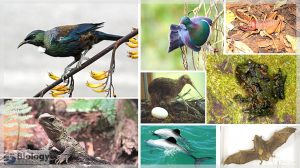Definition
noun
The scientific study of algae or seaweeds
Supplement
Phycology is a branch of biology that is concerned with the scientific study of algae or seaweeds. It is considered as a sub-discipline of botany, which is the biology of plants. Algae are a group of photosynthetic eukaryotes except for the blue-green algae, which are prokaryotic. They are closely related to plants because of their morphological and physiological features. They have a thallus body with structures similar to the higher plants’ roots, stems, and leaves. They do not possess a vascular system similar to that in higher plants though. They also have chlorophyll pigments that make them photosynthetic. They also have accessory pigments that are used as one of the bases for their taxonomic classification. One of the primary aspects of phycology is the identification and classification of algal species. In the old system of classification, i.e. five kingdom scheme of classification, the algae, together with the protozoa, belong to Kingdom Protista. They are distinct from the protozoa by being photosynthetic. The algae are subdivided into various phyla: Euglenophyta (euglenids), Chrysophyta (diatoms), Pyrrophyta (dinoflagellates), Chlorophyta (green algae), Phaeophyta (brown algae), and Rhodophyta (red algae). The Cyanophyta or blue-green algae, which are prokaryotic organisms, are traditionally included in this group but in modern classification, they are now grouped together with bacteria under Kingdom Monera. It should be noted, however, that the taxonomic classification of organisms is bound to change as further studies of the species would lead to newer system of classification, such as that in The NCBI taxonomy database.1
Word origin: Ancient Greek ϕûkos (“seaweed”) + -logy
Synonym:
- algology (botany)
See also:
Reference(s):
1 The NCBI taxonomy database. Retrieved from http://www.ncbi.nlm.nih.gov/taxonomy.







